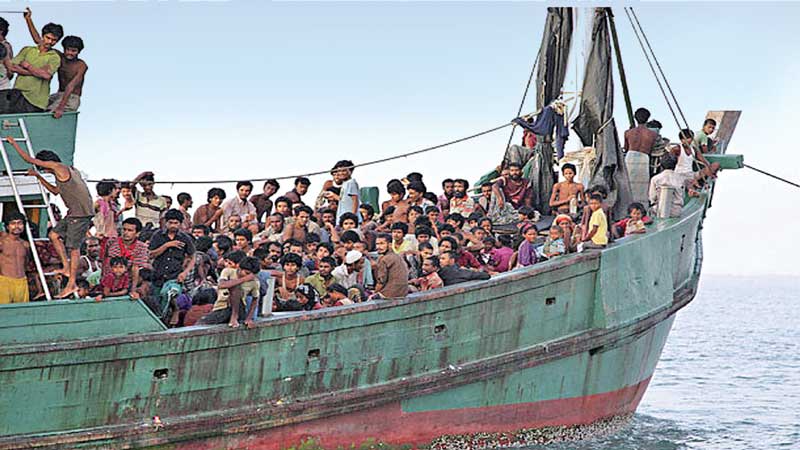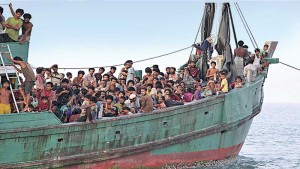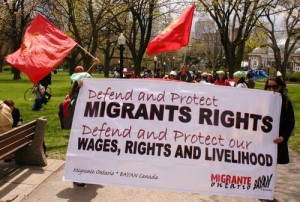In this blog post, Sunidhi, a student of the Rajiv Gandhi National University of Law, Patiala has written about irregular migrant workers. The blog post basically highlights their rights.
Introduction
Irregular migration is usually the movement that takes place outside the regulatory framework of the sending, transit and receiving countries. There is no clear or universally accepted definition of irregular migration. Looking at it from the point of view of destination countries, it is the unauthorized entry and residence in the country. In other words, the migrant does not possess the required documents to enter or stay in the country. From the perspective of the sending country, irregular migration refers to leaving the country without obtaining necessary documents.
The word used for such migrant is irregular and not illegal because the word ‘illegal’ is very negative. Also, an act can be illegal, but a person can never be illegal.
Types of irregular migration
In most cases, the irregular migrants enter the destination country secretly but become irregular after entering the country. They include:
- Those who overstay their visa or permit of residence.
- Persons whose employers withdraw an authorization to work that is tied to the immigration status.
- Those who have been cheated by recruiting agents or smugglers that make them believe that they are crossing the border in a regular way.
- Asylum seekers in the destination country after refusal to provide refugee status.
- Those who have crossed the border secretly, this includes those smuggled or trafficked.
The International Convention on The Protection of the Rights of All Migrant Workers
The UN General Assembly adopted the UN International Convention on the Protection of the Rights of All Migrant Workers and Members of their Families by Resolution 45/158 on 18 December 1990.[1]
This international instrument is the most relevant document for the protection of migrant workers. It protects the core rights of a migrant, regardless of the fact that the migrant is regular or not. As the name suggests, this instrument is to protect not only worker migrants but also their family members.
The primary difficulty with this instrument is that it has not been widely ratified despite being of fundamental importance. The following are the rights of the migrant workers and their family members:
- Article 7 of the Convention guarantees that all the migrants and their family members have equal rights, and the State will protect these rights of all the migrants without any discrimination by sex, race, color, marital status, birthplace or any other ground.
- Article 8 of the Convention guarantees that the migrant and his/her family can leave the destination country or any other country, including their country of origin at any point in time and enter his/her country of origin without any unreasonable restriction. There is an exception to this right which is that the State can impose reasonable restriction on the entry and exit of the migrant if it affects the public safety, health or threatens national security.
- Article 9 guarantees the right to life to the migrant and his/her family members. The migrants and their family members have the right to live a dignified life in the destination country who is a signatory to this convention.
- Article 10 protects the migrant worker as well as his/her family members from inhumane and cruel treatment. It protects them from all kinds of torture in the destination country.
- Article 11 protects the migrant worker as well as hi/her family members from the chains of bonded labor or slavery. It expressly prohibits slavery as well as forced labour of the migrant workers.
- Article 12 states that all the migrant workers and their family members have the right to freedom of thought, conscience, and religion. They can follow the religion of their choice, and no one can force them to change their religion or impose their thoughts on them. But this freedom will be curtailed if it affects the national security, public order or health.
- Article 13 provides freedom to hold opinion and expressions to the workers and their family members without any interference. This freedom includes freedom to receive and impart to others the opinion of migrant workers and their family members. But this right should not be misused to disrespect others or defame others.
- Article 14 ensures that others do not invade the private life of the migrant worker and his/her family members. Article 15 protects their property. It protects them from illegal deprivation of their property.
- Article 16 protects the migrant worker as well as his/her family members from mental as well as physical violence by police officials and private persons or institutions. It also protects them from unlawful arrest by police officials. It states that they should be informed of the grounds of arrest in their language, in case they are arrested.
- Article 17 states that all those migrant workers and their family members who are deprived of their liberty should be treated with dignity.
- Article 18 states that the person who is detained shall be given the chance to be heard and should be given the chance to fair trial by a competent court.
- Article 19 protects the migrant workers as well as their family members from retrospective application of criminal laws.
- Articles 20-24 protect the migrant worker and his family members from undue influence during the time they are deprived of their liberty. It protects them from collective expulsion and destroying their travel documents without any authorization. Article 23 provides consular and diplomatic assistance to the migrant and his family members.
- Article 25 ensures that the terms of service and payment of the migrant workers as well as their family members are not less than what the nationals of that state receive. Article 26 provides them the right to form trade unions.
- Article 27 and 28 ensure social and medical security to the migrant workers and their family members.
- Article 30 ensures that the child of a migrant gets a name, nationality and birth certificate.
- Article 31 protects migrant’s cultural identity.
- Article 32 gives the right to repatriate a migrant’s earnings and savings.
Some of the rights provided in this Convention are the basic human rights that are even drafted in other human rights documents, while others are some special rights to ensure that the migrant and his family members live a life of dignity in the destination country. These rights are certainly very important for survival in a foreign country.
Footnote:
[1] http://www2.ohchr.org/english/law/cmw.htm.
 Serato DJ Crack 2025Serato DJ PRO Crack
Serato DJ Crack 2025Serato DJ PRO Crack













 Allow notifications
Allow notifications


